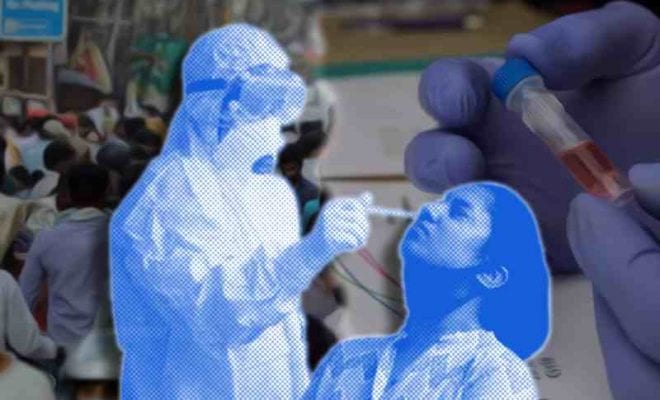Delhi near herd immunity, sero-study shows 50% with antibodies against Coronavirus

Last updated on February 6th, 2021 at 09:01 am
The highest seroprevalence was demonstrated in the fifth round of serological surveillance done by the Delhi government. The sero-study has shown over 50% of those surveyed have developed antibodies against the coronavirus, suggesting the capital is nearing herd immunity. This is also the highest prevalence reported among all the studies conducted by the Delhi government since the pandemic began.
A senior government official said, “In one district, the prevalence is around 58%, which clearly shows that a large number of people have developed antibodies against the virus.”
The survey that ended on Friday had 28,840 samples collected by authorities, making the number largest to date in Delhi for a sero-study. In the majority of other cities, such studies have shown a seroprevalence of 30-40%. Only Pune has recorded seroprevalence of over 50%, but that was months ago.
Experts believe that the fact that number of new cases detected in Delhi have been constantly declining shows that majority of people might already have been infected with the virus and developed antibodies against it.
The first serosurvey was conducted last year in August by the Delhi government that showed 29.1% of samples to have developed antibodies. This figure dropped to 25.1% in September and in October was 25.5%. In July, a serosurvey was conducted by the National Centre for Disease Control (NCDC) that showed 23% of participants to have developed antibodies.
On January 11, the Delhi government commenced the fifth and latest round of sero surveillance, wherein the samples were sent to the Institute of Liver and Biliary Sciences (ILBS) for testing.
Dr Shobha Broor, former head of microbiology at AIIMS said, “The number may go up to 70% in the next round as more people would have got vaccinated by that time. Having presence of antibodies will not affect the ongoing vaccination drive in any case. Those who have developed antibodies can go ahead and take the shot as the vaccine will further boost the response.”
High antibody prevalence will be significantly contributary in controlling the pandemic. Dr. Neeraj Nischal, associate professor in Medicine at AIIMS said, “It shows that a lot of asymptomatic infections did happen in the course of the pandemic, which was not reported at that time. This is our natural way of acquiring herd immunity as approximately 50 percent have developed antibodies against the virus. This coupled with the ongoing vaccination drive will help in achieving herd immunity, and controlling the pandemic will be faster than expected.”



